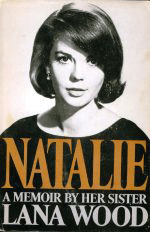Recently, I've read some very serious, very dense, very...ummm, some might call booooooring books. I'll give you a quick wrap up of the two in this post. First up, my least favorite of the two...
Are you looking for a classic and historical fiction book that will make you walk away feeling miserable? Well, here ya go...The Jungle by Upton Sinclair. I went into this book knowing of it as "the meat-packing industry" book. However, this book is much, much, much more. Rather than being an exhibition you might read in a newspaper or magazine, this book follows one man's life journey that happens to include the meat-packing district in Chicago during the early 20th century.
Jurgis Rudkus, a young Lithuanian immigrant, is the main character that you follow from Lithuania, to his marriage with Ona, his job(s) in the meat-packing district, his injury/injuries, falling into debt, illness within the family, Jurgis' jail time, multiple deaths within the family, Jurgis' alcoholic stupors and finally his turn to socialism.
I knew this was a piece of socialist propaganda and Sinclair makes it seem that socialism is the only solution to a situation like the pure torture and tragedy of Jurgis' tale of woe. However, it's because of this book and other outcries that our society does not operate in this low-down process any longer. I know that our society is not perfect, but phew, after reading this you can see how far we've come since the beginning of the last century!
I'm glad that I was able to push myself to finish this book, simply because it's a classic and I can now say that I've read it...but, I will not be reading it again. At least any time soon. Very depressing, if eye-opening.
Next up, Cleopatra by Stacy Schiff. I learned quite a bit from this book. First up, lets discuss the cover. Did you know that the white ribbon Cleopatra wore was called a diadem and was considered the same as a crown? And did you know that pearls within her day were as prized as diamonds of today?
Here's another interesting tidbit, we don't officially know what Cleopatra looked like (much like we have no idea what Helen of Troy looked like). There are certain facial features that we know were prominent, her nose and chin, but other than that...who knows? There were coins minted during her time, but Cleopatra herself had to approve those renderings. Who's going to approve a realistic photo that makes you look bad? Most all other sculptures and wall art were constructed at least 50 years after her death.
What I really enjoyed about this book was how Schiff came to the table attempting to be as objective as possible. She has taken very subjective writings (like Shakespeare and Shaw) and attempted to see the truth behind the judgements. Within this book, there is a lot of person A said this, person B said this and person C said this, but the most realistic thing about this is...fill in the blank. What you come away with is that Cleopatra may have been a seductress and manipulative, but she was also very shrewd, an amazing negotiator and was a phenomenal queen of Egypt. At the time of her death, the Egyptian empire was the largest it ever was under the Ptolemaic family.
Many of the stories about Cleopatra are true...she did have a child with Julius Caesar, then three with Mark Antony. She also killed all of her siblings, however you learn that it was more of a "kill them before they kill me" type situation. And this type of sibling murder was everyday rivalry back during this period of time (sad, I know).
Lastly, I will share that Schiff debunks one of the age-old Cleopatra myths. The asp. At the time of her death, Cleopatra was on suicide watch under Octavian. She'd already attempted to kill herself so she could be with her beloved Antony, but Octavian wanted to parade her through Rome to display his dominance. Knowing this, what is the likelihood of someone being able to smuggle in a six-foot long, hissing and puffing cobra within a fig basket? I mean, really? Let's not forget this was also the royal emblem of Egypt. Convenient much? Schiff also discusses how Cleopatra had an obsession with poisons her entire life and that such a woman who was known for her meticulous planning would not entrust her death with a notoriously sluggish snake whose bite would have been slow and painful. Poison was a much more likely alternative.
I loved learning all of this information about Cleopatra, but I'll be honest and say that this book is not for everyone. It does tend to read like a history book and if that's not your bag...well, I wouldn't recommend it for you. If I were to compare it to a semi-recent read of mine, I would choose The Duchess. Both of these are highly fascinating books involving highly fascinating women, but the books are DENSE. There is no dialogue and it's virtually fact after fact after fact with some objective hypotheses. If you're like me and enjoy this kind of read from time to time, go for it. If not...don't, you'll be bored to tears.
































